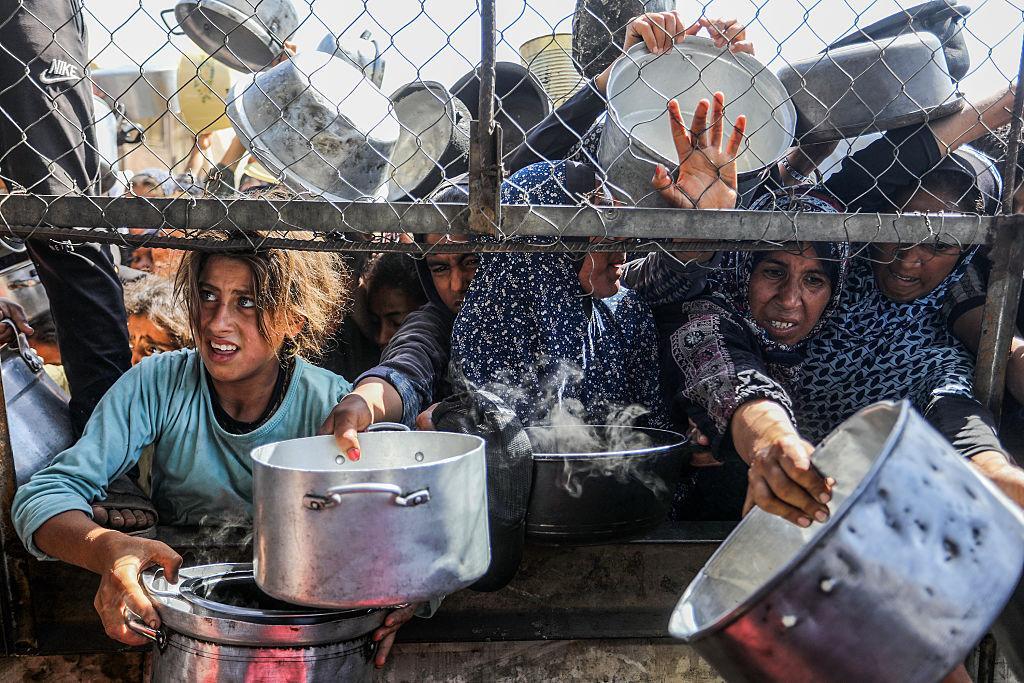
Eid in Gaza: Prayer Amidst Ruins, Hunger, and Growing Humanitarian Crisis
On June 6, 2025, Palestinians in Gaza observed Eid al-Adha, one of the most significant Islamic holidays, amidst an unprecedented humanitarian crisis. The devastating consequences of ongoing conflicts, widespread displacement, and crippling economic conditions have left the population in a state of unparalleled distress. As the residents of Gaza gathered for prayers in open spaces, their faith and resilience in the face of adversity served as a powerful testament to the indomitable human spirit.
The destruction of mosques, a symbol of Islamic worship and community, has forced Gazans to adapt their prayer routines. In the aftermath of the devastating conflict, many mosques lie in ruins, leaving residents to congregate in open spaces, parks, and streets. This makeshift arrangement has become a poignant reminder of the resilience and determination of the Gazan people in the face of unimaginable adversity.
The humanitarian crisis in Gaza has escalated to alarming proportions, with the United Nations warning of an impending famine that will affect nearly 500,000 people. The dire situation is a result of the ongoing blockade, which has severely limited the flow of essential goods, including food and medical supplies. The UN has reported that Gaza’s food reserves have been depleted, and the situation is rapidly deteriorating.
The scarcity of food has become a daily reality for Gazans, with many families struggling to access basic necessities. The World Food Programme (WFP) has warned that the situation is “catastrophic,” with Gazans facing “desperate” conditions. The lack of food has led to increased malnutrition, particularly among children, who are the most vulnerable to the crisis.
Aid distribution remains a significant challenge in Gaza, with the escalating violence making it difficult for humanitarian organizations to access the affected areas. The Israeli military has imposed strict restrictions on movement, making it nearly impossible for aid convoys to enter the territory. The limited access to aid has exacerbated the crisis, leaving many Gazans without access to basic necessities like food, shelter, and medical care.
Despite the dire circumstances, the people of Gaza have continued to show remarkable strength and resilience. In the face of unimaginable hardship, they have come together to support one another, sharing what little they have to ensure the well-being of their families and communities.
As Eid al-Adha celebrations took place, Gazans gathered in open spaces to perform their prayers, often in the presence of rubble and destruction. The atmosphere was somber, with many families struggling to access even the most basic necessities. However, amidst the devastation, there was a sense of hope and determination. The Gazans have always been known for their resilience, and this Eid al-Adha was no exception.
The Eid celebrations served as a powerful reminder of the importance of faith, community, and resilience in the face of adversity. Despite the unprecedented challenges they face, the people of Gaza continue to find ways to come together, to support one another, and to maintain their dignity in the most difficult of circumstances.
As the world watches the humanitarian crisis in Gaza unfold, it is essential to remember the human impact of the ongoing conflict. The people of Gaza are not just statistics or news headlines; they are individuals with families, hopes, and dreams. They deserve our support, our compassion, and our action.
As we reflect on the Eid al-Adha celebrations in Gaza, we are reminded of the importance of promoting peace, justice, and human rights. The people of Gaza have been subjected to unimaginable suffering for far too long. It is our collective responsibility to demand an end to the blockade, to demand an end to the violence, and to demand an end to the humanitarian crisis.
Source:
https://thecsrjournal.in/eid-al-adha-in-gaza-faith-endures-amid-devastation-and-food-shortages/



